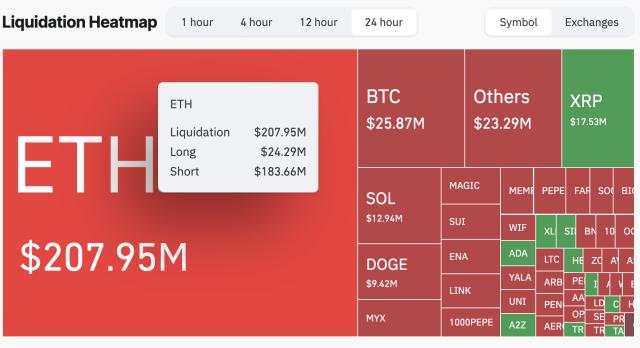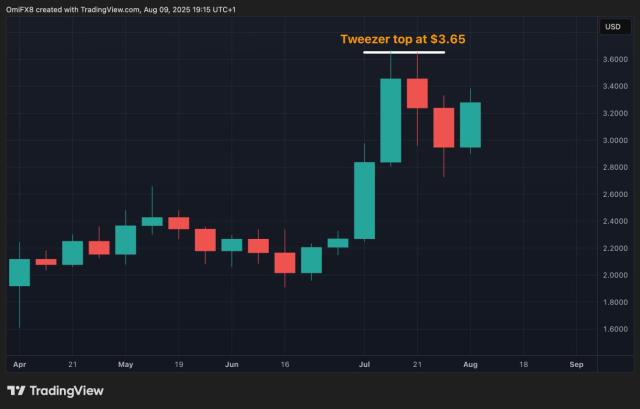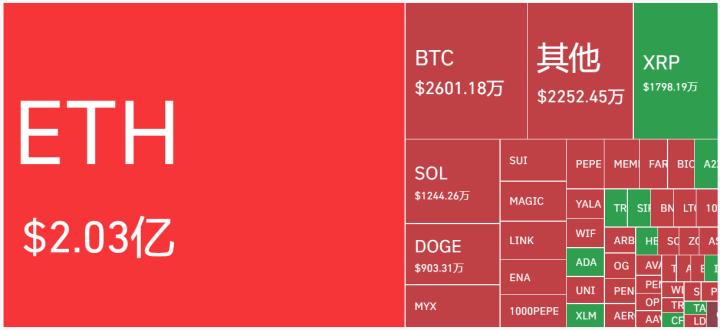By Liu Zhengyao, Lawyer
Original link: https://mp.weixin.qq.com/s/Dkk34rZ-P4GgAAHSVdaTxw
Disclaimer: This article is a reprint. Readers can find more information by following the original link. If the author has any objections to the reprint format, please contact us and we will modify it to suit the author's request. This reprint is for informational purposes only and does not constitute investment advice or represent the views or positions of Wu Blockchain.
Introduction
On July 28, 2025, the Supreme People's Court, the Supreme People's Procuratorate, and the Ministry of Public Security (hereinafter referred to as "the two high courts and the ministry") jointly held a press conference and issued the "Opinions on Handling Criminal Cases Related to Assisting Information Network Criminal Activities" (hereinafter referred to as the "Opinions"), which provide more detailed provisions on the criminal composition, severity, leniency, and other circumstances of the crime of assisting information network criminal activities.
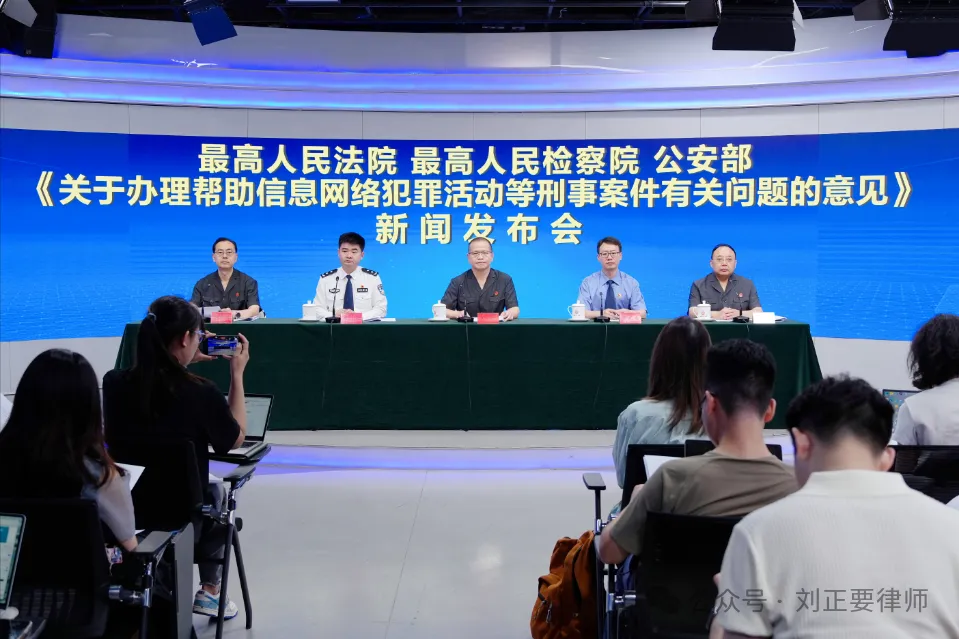
Among them, there is a clause that will significantly affect the crypto circle, especially the group that buys and sells virtual currencies (such as U merchants, etc.).
01What does the "Opinion" say?
(I) Background of the Opinion
Cybercrimes, represented by telecommunications network fraud, have begun to develop in depth, and black and gray industries such as "running point platforms" that provide financial services such as telecom fraud, online gambling, and pyramid schemes are growing continuously.
In fact, judicial organs including the Supreme People's Court, the Supreme People's Procuratorate and the Ministry of Justice have previously issued separate or joint announcements:
1. "Opinions on Several Issues Concerning the Application of Law in Handling Criminal Cases Involving Telecommunications and Internet Fraud" (the Supreme People's Court, the Supreme People's Procuratorate, and the Ministry of Justice, Fa Fa [2016] No. 32);
2. "Opinions on Several Issues Concerning the Application of Law in Handling Criminal Cases Involving Telecommunications and Internet Fraud (II)" (the Supreme People's Court, the Supreme People's Procuratorate, and the Ministry of Justice, Fa Fa [2021] No. 22);
3. "Opinions of the Supreme People's Court, the Supreme People's Procuratorate, and the Ministry of Public Security on Several Issues Concerning the Application of Criminal Procedure in Handling Cases of Information Network Crime" (the Supreme People's Court, the Supreme People's Procuratorate, and the Ministry of Public Security, Fa Fa [2022] No. 23);
4. "Opinions on Several Issues Concerning the Application of Law in Handling Criminal Cases Involving Cross-Border Telecommunications and Internet Fraud" (Prosecutions, Supreme People's Courts, and Ministry of Justice, June 26, 2024)
5. "Interpretation of the Supreme People's Court on Several Issues Concerning the Application of Law in the Trial of Criminal Cases of Concealing or Hiding Proceeds of Crime or Proceeds of Proceeds of Crime" (Supreme Court, Fa Shi [2021] No. 8);
6. "Interpretation on Several Issues Concerning the Application of Law in Handling Criminal Cases Such as Illegal Use of Information Networks and Assisting Information Network Criminal Activities" (Supreme People's Court, Supreme People's Procuratorate, Fa Shi [2019] No. 15)
These provisions stipulate the composition of crimes such as telecommunications fraud (fraud), aiding and abetting (assisting in information network criminal activities), and concealing (concealing and hiding criminal proceeds and profits from criminal proceeds), especially the presumption rules of the "subjective knowledge" of the perpetrators in aiding and abetting and concealing crimes.
However, the complexity of social activities cannot be addressed by a single or limited judicial interpretation or criminal policy document. For example, the emergence of virtual currencies has significantly weakened traditional money laundering methods (such as underground banks). Due to the inherent lag in judicial activity, it is difficult for laws and regulations to immediately address crimes related to virtual currencies.
Even with the relative flexibility of judicial interpretations, some behaviors cannot be rashly criminalized due to the restraint of criminal justice and the principle of legality. For example, Article 12 of the aforementioned "Interpretation on Several Issues Concerning the Application of Law in Handling Criminal Cases of Illegal Use of Information Networks and Assisting Information Network Criminal Activities" (hereinafter referred to as the "Interpretation") stipulates that if one "knowingly assists others in committing crimes through information networks, " any of the following acts constitute the crime of aiding and abetting: "1. Providing assistance to three or more individuals; 2. Paying a settlement amount of more than 200,000 yuan; 3. Providing funds of more than 50,000 yuan through advertising or other means; and 7. Other serious circumstances. "
What are other serious circumstances? Are there relatively uniform criteria for determining them in practice? Furthermore, Article 11, Paragraph 7 of the aforementioned Interpretation also contains a catch-all clause: " other circumstances sufficient to establish that the perpetrator was aware of the act ." What is the standard for determining "other circumstances sufficient"? Practices vary.
As a result, the "Opinion" was finally issued, providing more precise guidance on the application of the crime of aiding and abetting in recent years.

(2) Specific Contents of the Opinion
The Opinion consists of five parts and 16 articles. We will only discuss the core sections:
First, the catch-all clause in Article 11, Item 7 of the Interpretation, “ other circumstances sufficient to determine that the actor was aware of the situation ”, is clearly defined as follows:
"1. Illegally providing equipment for bulk insertion of phone cards, illegally providing equipment or software with functions such as changing caller IDs, virtual dialing, or illegally accessing public telecommunications networks for Internet calls, illegally providing bulk account numbers, automatic network address switching systems, or platforms for bulk SMS verification or voice verification;
Where a person continues to engage in such conduct despite being subject to restrictions or service suspensions by financial institutions, telecommunications operators, or internet service providers due to unusual circumstances such as fraud ;
Prepare your response to the investigation in advance."
Second, clear provisions are made for other serious circumstances in the catch-all clause of Article 12, paragraph 1, item 7 of the Interpretation, and Lawyer Liu (web3_lawyer) will not elaborate on them.
Third, a clear criminal policy of "balancing leniency and severity" will be established. For example, those who organize or exploit minors, students, the elderly, and other groups to commit crimes (the crime of aiding and abetting) will be severely punished; however, those who are deceived into committing crimes (also referred to as the crime of aiding and abetting), those who participate for a short period of time or gain little profit, or those who are minors or students involved in the case may be treated leniently.
02How does the "Opinion" affect the crypto?
As an author who often "brands himself" as a web3 lawyer in articles and videos (and has indeed handled many cases in the crypto in reality), Lawyer Liu will definitely start his analysis from the impact of the issuance of the "Opinion" on the crypto, or the encryption circle.
First, in general, the Opinion will not have a very obvious and strong impact on the low-key and shrinking mainland crypto community;
Secondly, from the details, the "Interpretation" has used the behavior in the figure below as the standard for presuming that the parties "know" that others use information networks to commit crimes.
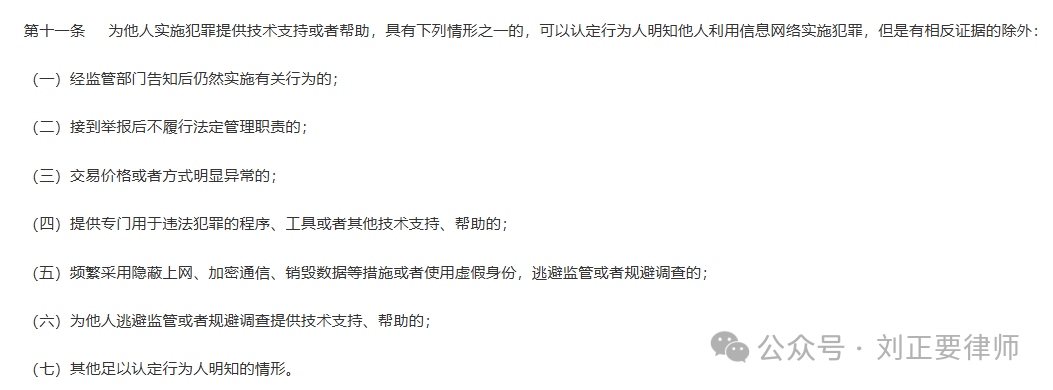
The screenshots actually cover many seemingly everyday, yet actually high-risk, cryptocurrencies: for example, buying or selling virtual currencies at prices significantly below or above market price; and using encrypted messaging apps like Telegram and WhatsApp. These actions would be considered abnormal by judicial authorities, and while I don't think this regulation is necessarily justified, it's the standard used in practice.
Finally, from a micro perspective, the Opinion sets the following behaviors as the standard for presuming the actor’s subjective knowledge:
! ! Those who continue to engage in related conduct despite being subject to restrictions or service suspensions by financial institutions, telecommunications operators, or internet service providers due to fraud or other unusual circumstances! !
Objectively, this has put a tight rein on the increasingly shrinking mainland encryption circle.
If you are involved in "fraud-related" factors in virtual currency trading (for example, receiving fraudulent funds when withdrawing funds), and your bank card is frozen (stopped), your call or text message functions are restricted, or your WeChat or Alipay account is blocked by banks, telecommunications companies, WeChat and Alipay platforms (excluding overseas virtual currency exchanges); if you continue to trade virtual currency and unfortunately encounter "fraud-related" factors again, then, sorry, you may be suspected of aiding and abetting fraud.
Let’s take another straightforward example: Zhang San received stolen money from buying and selling virtual currency, and his bank card (or WeChat, Alipay) was frozen. However, he continued to buy and sell virtual currency and received dirty money. In this case, my country’s criminal law can presume that Zhang San “knowingly” provided (intentional) assistance to others in committing crimes through the information network.
03 Suggestions for crypto practitioners
On the AlphaLawyer platform, the author searched for "assisting information network criminal activities" as the case cause and "virtual currency" as the keyword, and found that the number of verdicts for the crime of aiding and abetting trust crimes and their development trend over the past five years are roughly as shown in the figure below:
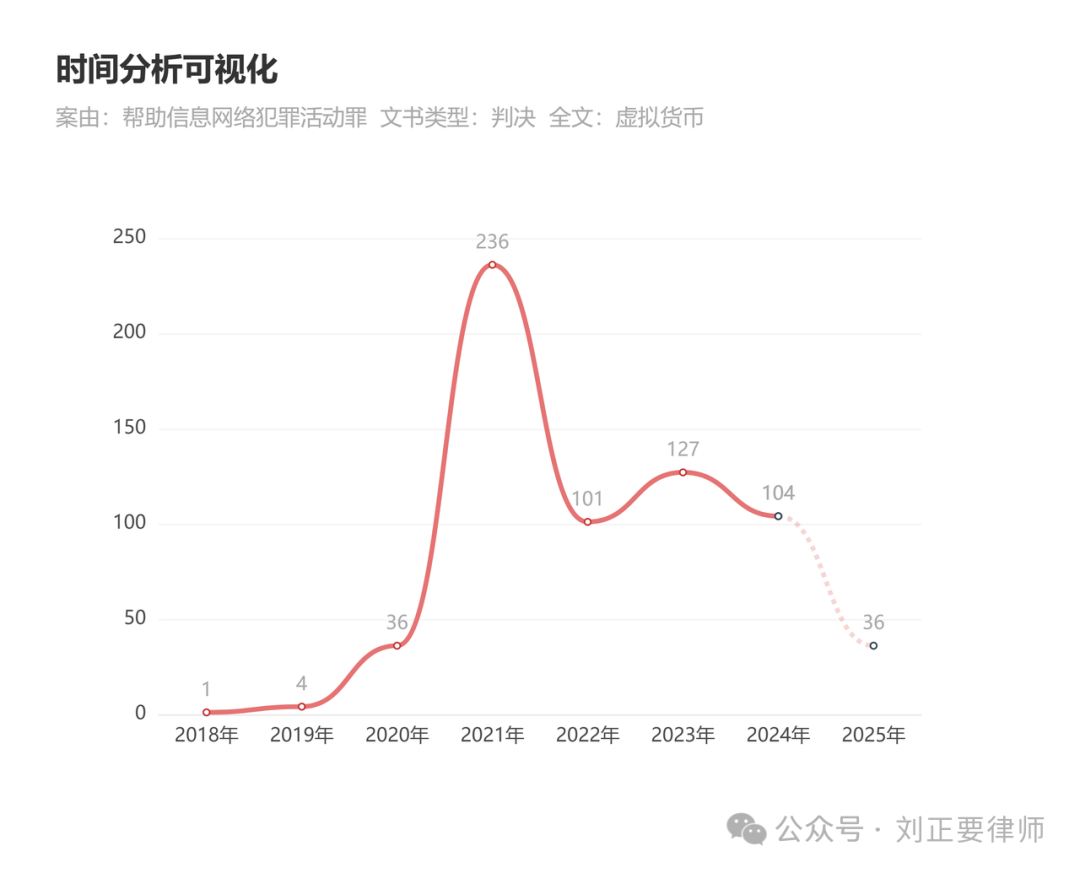
However, it's important to note that since 2021, the number of judgments posted online by courts at all levels nationwide has significantly decreased, so the chart above doesn't fully and objectively represent the true extent of virtual currency-related fraud cases. My personal assessment is that the number has been increasing or at least relatively stable since 2021.
For those working in the crypto world, the foreseeable future of mainland China's crypto ecosystem is that it will only become increasingly isolated and difficult. In practical terms, the author recommends that you legally hold your virtual currency, but exercise extreme caution when withdrawing it. If you accidentally receive illicit funds, especially those involving fraudulent activity, it's best to completely refrain from withdrawing funds from mainland China.
Original link: https://mp.weixin.qq.com/s/Dkk34rZ-P4GgAAHSVdaTxw
Disclaimer: This article is a reprint. Readers can find more information by following the original link. If the author has any objections to the reprint format, please contact us and we will modify it to suit the author's request. This reprint is for informational purposes only and does not constitute investment advice or represent the views or positions of Wu Blockchain.
Introduction
On July 28, 2025, the Supreme People's Court, the Supreme People's Procuratorate, and the Ministry of Public Security (hereinafter referred to as "the two high courts and the ministry") jointly held a press conference and issued the "Opinions on Handling Criminal Cases Related to Assisting Information Network Criminal Activities" (hereinafter referred to as the "Opinions"), which provide more detailed provisions on the criminal composition, severity, leniency, and other circumstances of the crime of assisting information network criminal activities.

(Pictures from the Internet, please delete if infringed)
Among them, there is a clause that will significantly affect the crypto circle, especially the group that buys and sells virtual currencies (such as U merchants, etc.).
01What does the "Opinion" say?
(I) Background of the Opinion
Cybercrimes, represented by telecommunications network fraud, have begun to develop in depth, and black and gray industries such as "running point platforms" that provide financial services such as telecom fraud, online gambling, and pyramid schemes are growing continuously.
In fact, judicial organs including the Supreme People's Court, the Supreme People's Procuratorate and the Ministry of Justice have previously issued separate or joint announcements:
1. "Opinions on Several Issues Concerning the Application of Law in Handling Criminal Cases Involving Telecommunications and Internet Fraud" (the Supreme People's Court, the Supreme People's Procuratorate, and the Ministry of Justice, Fa Fa [2016] No. 32);
2. "Opinions on Several Issues Concerning the Application of Law in Handling Criminal Cases Involving Telecommunications and Internet Fraud (II)" (the Supreme People's Court, the Supreme People's Procuratorate, and the Ministry of Justice, Fa Fa [2021] No. 22);
3. "Opinions of the Supreme People's Court, the Supreme People's Procuratorate, and the Ministry of Public Security on Several Issues Concerning the Application of Criminal Procedure in Handling Cases of Information Network Crime" (the Supreme People's Court, the Supreme People's Procuratorate, and the Ministry of Public Security, Fa Fa [2022] No. 23);
4. "Opinions on Several Issues Concerning the Application of Law in Handling Criminal Cases Involving Cross-Border Telecommunications and Internet Fraud" (Prosecutions, Supreme People's Courts, and Ministry of Justice, June 26, 2024)
5. "Interpretation of the Supreme People's Court on Several Issues Concerning the Application of Law in the Trial of Criminal Cases of Concealing or Hiding Proceeds of Crime or Proceeds of Proceeds of Crime" (Supreme Court, Fa Shi [2021] No. 8);
6. "Interpretation on Several Issues Concerning the Application of Law in Handling Criminal Cases Such as Illegal Use of Information Networks and Assisting Information Network Criminal Activities" (Supreme People's Court, Supreme People's Procuratorate, Fa Shi [2019] No. 15)
These provisions stipulate the composition of crimes such as telecommunications fraud (fraud), aiding and abetting (assisting in information network criminal activities), and concealing (concealing and hiding criminal proceeds and profits from criminal proceeds), especially the presumption rules of the "subjective knowledge" of the perpetrators in aiding and abetting and concealing crimes.
However, the complexity of social activities cannot be addressed by a single or limited judicial interpretation or criminal policy document. For example, the emergence of virtual currencies has significantly weakened traditional money laundering methods (such as underground banks). Due to the inherent lag in judicial activity, it is difficult for laws and regulations to immediately address crimes related to virtual currencies.
Even with the relative flexibility of judicial interpretations, some behaviors cannot be rashly criminalized due to the restraint of criminal justice and the principle of legality. For example, Article 12 of the aforementioned "Interpretation on Several Issues Concerning the Application of Law in Handling Criminal Cases of Illegal Use of Information Networks and Assisting Information Network Criminal Activities" (hereinafter referred to as the "Interpretation") stipulates that if one "knowingly assists others in committing crimes through information networks, " any of the following acts constitute the crime of aiding and abetting: "1. Providing assistance to three or more individuals; 2. Paying a settlement amount of more than 200,000 yuan; 3. Providing funds of more than 50,000 yuan through advertising or other means; and 7. Other serious circumstances. "
What are other serious circumstances? Are there relatively uniform criteria for determining them in practice? Furthermore, Article 11, Paragraph 7 of the aforementioned Interpretation also contains a catch-all clause: " other circumstances sufficient to establish that the perpetrator was aware of the act ." What is the standard for determining "other circumstances sufficient"? Practices vary.
As a result, the "Opinion" was finally issued, providing more precise guidance on the application of the crime of aiding and abetting in recent years.

(2) Specific Contents of the Opinion
The Opinion consists of five parts and 16 articles. We will only discuss the core sections:
First, the catch-all clause in Article 11, Item 7 of the Interpretation, “ other circumstances sufficient to determine that the actor was aware of the situation ”, is clearly defined as follows:
"1. Illegally providing equipment for bulk insertion of phone cards, illegally providing equipment or software with functions such as changing caller IDs, virtual dialing, or illegally accessing public telecommunications networks for Internet calls, illegally providing bulk account numbers, automatic network address switching systems, or platforms for bulk SMS verification or voice verification;
Where a person continues to engage in such conduct despite being subject to restrictions or service suspensions by financial institutions, telecommunications operators, or internet service providers due to unusual circumstances such as fraud ;
Prepare your response to the investigation in advance."
Second, clear provisions are made for other serious circumstances in the catch-all clause of Article 12, paragraph 1, item 7 of the Interpretation, and Lawyer Liu (web3_lawyer) will not elaborate on them.
Third, a clear criminal policy of "balancing leniency and severity" will be established. For example, those who organize or exploit minors, students, the elderly, and other groups to commit crimes (the crime of aiding and abetting) will be severely punished; however, those who are deceived into committing crimes (also referred to as the crime of aiding and abetting), those who participate for a short period of time or gain little profit, or those who are minors or students involved in the case may be treated leniently.
02How does the "Opinion" affect the crypto?
As an author who often "brands himself" as a web3 lawyer in articles and videos (and has indeed handled many cases in the crypto in reality), Lawyer Liu will definitely start his analysis from the impact of the issuance of the "Opinion" on the crypto, or the encryption circle.
First, in general, the Opinion will not have a very obvious and strong impact on the low-key and shrinking mainland crypto community;
Secondly, from the details, the "Interpretation" has used the behavior in the figure below as the standard for presuming that the parties "know" that others use information networks to commit crimes.

The screenshots actually cover many seemingly everyday, yet actually high-risk, cryptocurrencies: for example, buying or selling virtual currencies at prices significantly below or above market price; and using encrypted messaging apps like Telegram and WhatsApp. These actions would be considered abnormal by judicial authorities, and while I don't think this regulation is necessarily justified, it's the standard used in practice.
Finally, from a micro perspective, the Opinion sets the following behaviors as the standard for presuming the actor’s subjective knowledge:
! ! Those who continue to engage in related conduct despite being subject to restrictions or service suspensions by financial institutions, telecommunications operators, or internet service providers due to fraud or other unusual circumstances! !
Objectively, this has put a tight rein on the increasingly shrinking mainland encryption circle.
If you are involved in "fraud-related" factors in virtual currency trading (for example, receiving fraudulent funds when withdrawing funds), and your bank card is frozen (stopped), your call or text message functions are restricted, or your WeChat or Alipay account is blocked by banks, telecommunications companies, WeChat and Alipay platforms (excluding overseas virtual currency exchanges); if you continue to trade virtual currency and unfortunately encounter "fraud-related" factors again, then, sorry, you may be suspected of aiding and abetting fraud.
Let’s take another straightforward example: Zhang San received stolen money from buying and selling virtual currency, and his bank card (or WeChat, Alipay) was frozen. However, he continued to buy and sell virtual currency and received dirty money. In this case, my country’s criminal law can presume that Zhang San “knowingly” provided (intentional) assistance to others in committing crimes through the information network.
03 Suggestions for crypto practitioners
On the AlphaLawyer platform, the author searched for "assisting information network criminal activities" as the case cause and "virtual currency" as the keyword, and found that the number of verdicts for the crime of aiding and abetting trust crimes and their development trend over the past five years are roughly as shown in the figure below:

However, it's important to note that since 2021, the number of judgments posted online by courts at all levels nationwide has significantly decreased, so the chart above doesn't fully and objectively represent the true extent of virtual currency-related fraud cases. My personal assessment is that the number has been increasing or at least relatively stable since 2021.
For those working in the crypto world, the foreseeable future of mainland China's crypto ecosystem is that it will only become increasingly isolated and difficult. In practical terms, the author recommends that you legally hold your virtual currency, but exercise extreme caution when withdrawing it. If you accidentally receive illicit funds, especially those involving fraudulent activity, it's best to completely refrain from withdrawing funds from mainland China.




